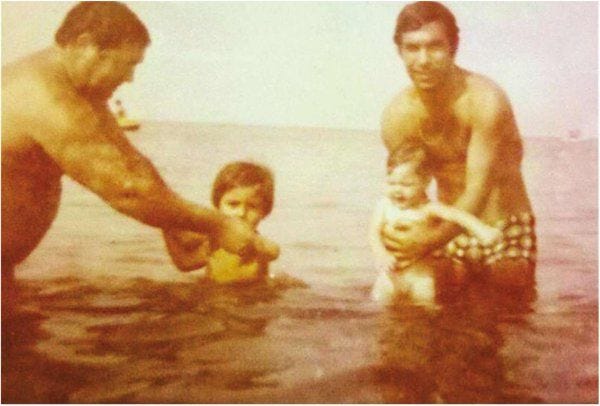It seems hardly a day goes by without the Carabinieri, that is one of Italy’s many police forces, making numerous arrests in Palermo of people suspected of being members of the mafia. I keep an eye on Italy’s premier news agency’s site (so you do not have to) and the stories keep on coming. The most recent tells us this (my translation of the key passages):
The carabinieri have remanded 20 people in custody, 7 to prison, 2 to house arrest and 11 to report to police stations…. The accusations are membership of the Mafia, extortion, drug dealing, receiving stolen goods, aiding and abetting the above, and carrying illegal weapons.
For the first time in a Mafia enquiry, family members of some imprisoned bosses have been questioned, who have been receiving money from the clan for the maintenance of the family and of the boss in prison, the crime of ‘ricettazione’ (literally ‘receiving’). The godfathers’ relatives seem to have received over time huge sums of money which the Mafiosi at large, according to the laws of Cosa nostra, dedicate to the families of those detained, and those in prison too.
None of this is particularly interesting, apart from the phrase ‘the first time’. (Incidentally, not for the first time, I am amazed by the way Italian journalism is so wordy and so full of jargon.) Let us just see why.
Lots of Mafiosi end up in prison. When they are there, clearly, they are not earning, and their wives, mother, sisters and children are impoverished as a result. The head of the clan has an obligation to look after these dependants. This is a sort of insurance policy that the ordinary low level Mafia man relies on. If anything happens to him, prison or worse, his loved ones will not suffer, they will be looked after.
Behind this is something we forget. The Mafia man is indifferent to the general public who he sees as a bunch of silly sheep; he hates the state, at both local and national level; he is Sicilian, and not an Italian, and his main loyalty is to the place he was born, not just his city or town, but his village or his quarter. His love is concentrated on very few people: his friends and his family.
The friends are the fellow Mafiosi. This network of friends is suffocating, restricted and almost incestuous in its intensity. Your friends you have known all your life, from babyhood, as you all grew up in the same quarter; you know their families, and they know yours. You have no ‘outside’ friends, because as a Mafioso you cannot trust a non-Mafioso. You work anti-social hours and are therefore unlikely to socialise with people outside Cosa Nostra. The pool of girls from which you can chose a wife is necessarily restricted by these inward looking and restricted social ties. You are likely to marry your best friend’s sister; even if you don’t, you are likely to end up with your brother-in-law becoming your best friend.

As a Mafia man you have an almost pathological devotion to your wife and children. If anything should happen to you, well, you know the risks. But if anything should happen to them – that is unthinkable. But the boss will always look after them, whatever happens. So, firm in that knowledge, you take risks for the boss, and if caught, you take the rap for the boss.
Because of this very strong group loyalty, because of this network of relationships and friendships, it is vital that the boss looks after the family members of dead Mafiosi or imprisoned Mafiosi. Not to do so would be catastrophic; it would mean he was a bad boss. This is the pact of loyalty: the men inside and out keep omertà; the reward is the knowledge that their friends and relations are being looked after. Breaking omertà would expose the family to the chill wind of the boss’s disfavour; essentially, they are hostages for your good behaviour.
If the state could destroy this illegal social security network, if the state could make sure that the families of the men inside suffer as most prisoners’ families suffer, then the chief motivation to maintain omertà would be broken. So, the recent arrests and sequestrations in Palermo are a hopeful beginning for those who want to see the cast iron loyalties that maintain Mafia solidarity destroyed.
In my book, spoiler alert, the lawyer Petrocchi, without quite knowing it, presides over the Most Noble and Ancient Confraternity of the Holy Souls in Purgatory, a charitable guild, set up to maintain a Church and a priest to pray for the Holy Souls (like a medieval chantry in England) which has since been made into the pension fund for the Mafia, as its charitable donations to those in need are directed in large part to the widows and children of Mafia men, and to the families of those in prison. The charity relies on lots of small donations, as well as the rents from certain properties, and this is a way of laundering drug money and making legitimate-looking payments to the needy. Most of these charitable guilds in Italy were nationalised either by Napoleon or by the Piedmontese government after unification. But a few survive.
The mafia is going to survive, even flourish, despite arrests, for as long as the bosses guarantee that arrest does not mean disaster for the family left behind. The Mafiosi will be loyal to the boss for as long as he is loyal to them. But once the boss cannot do that anymore, then the Mafia is doomed. This is the way forward in organised crime fighting: the boring, not very fiction-friendly, way of forensic accounting.




Thank you for helping me to begin to understand some of the ways in which the Mafia work. Always very informative and though provoking.